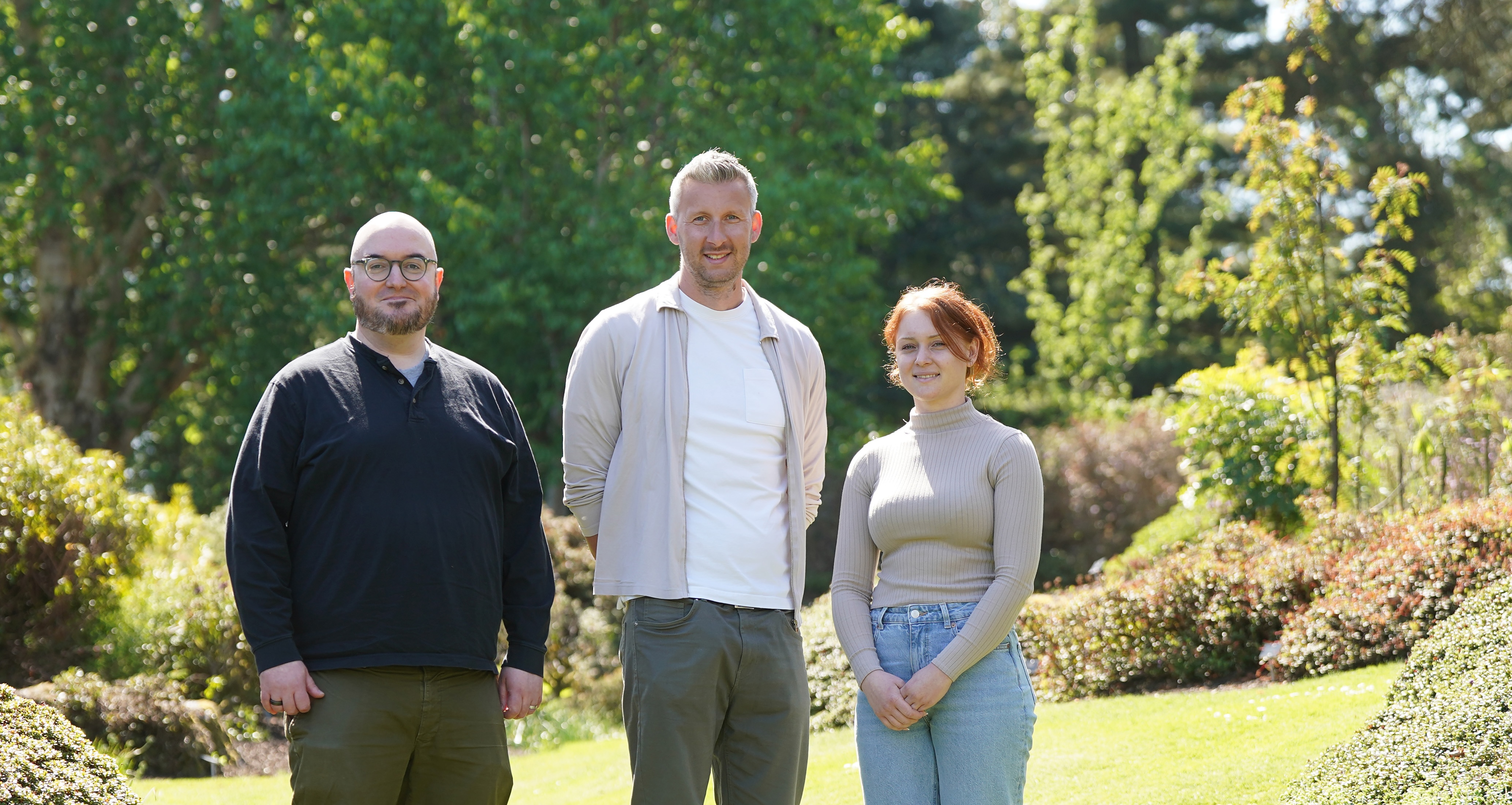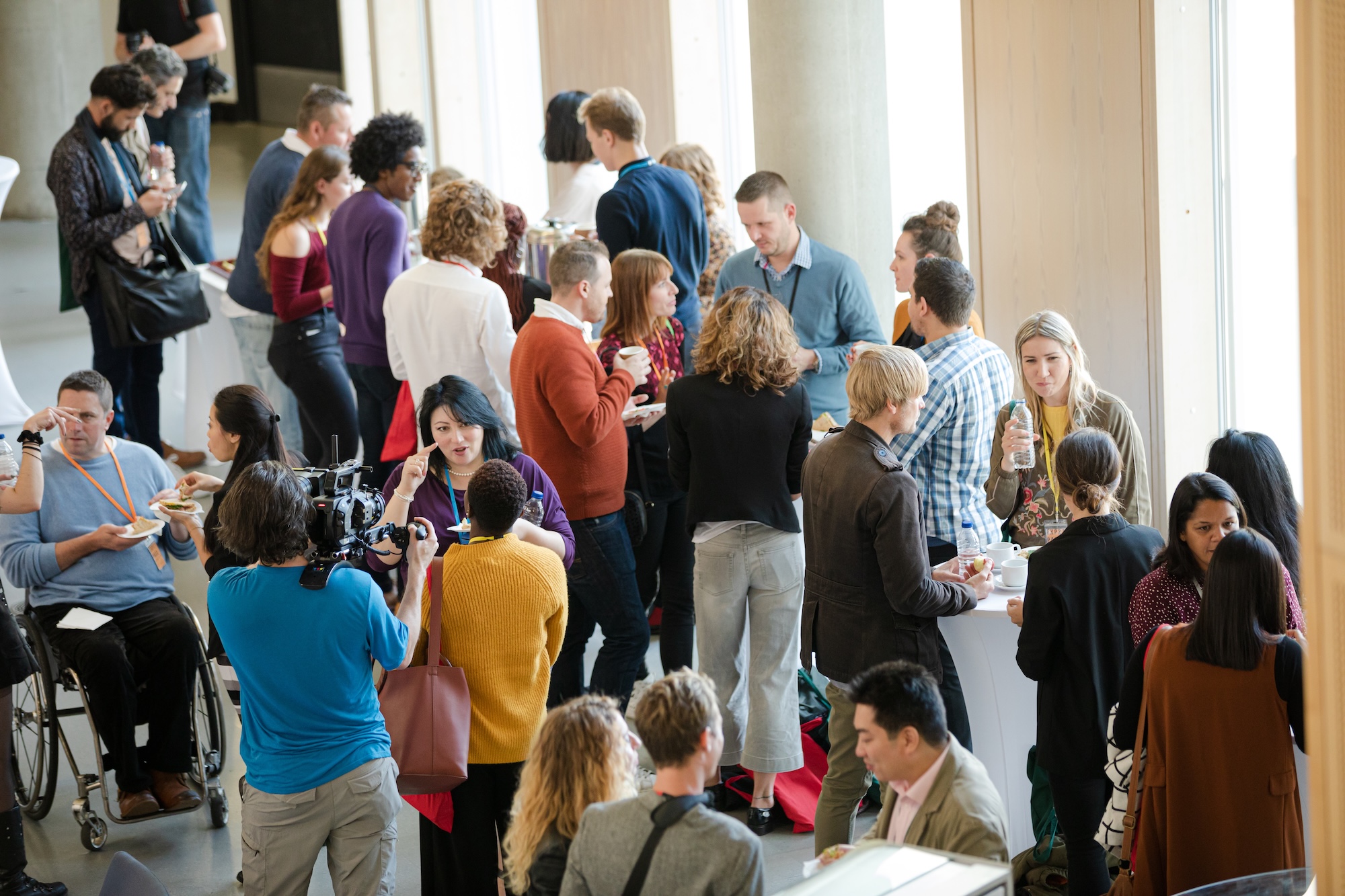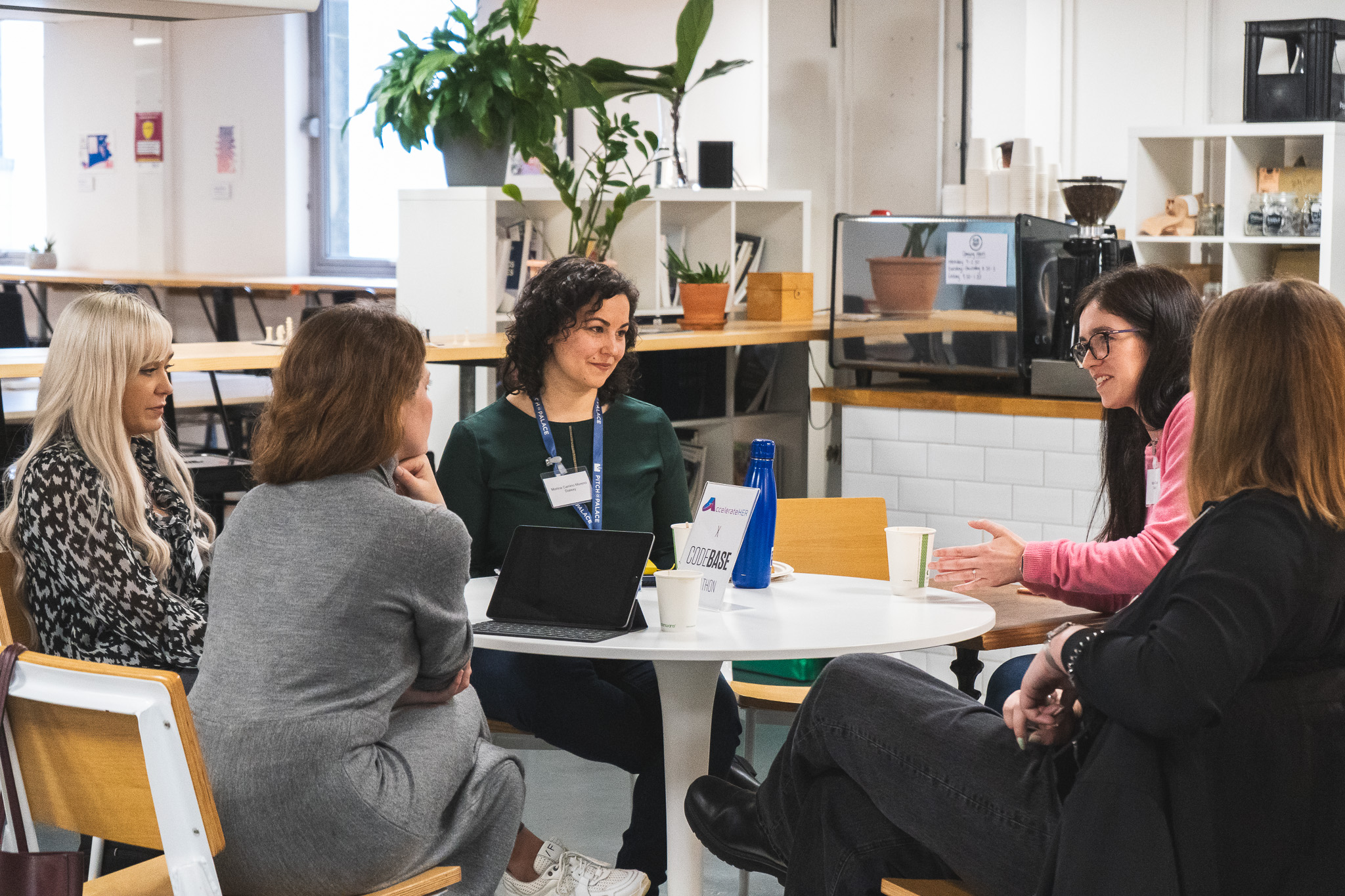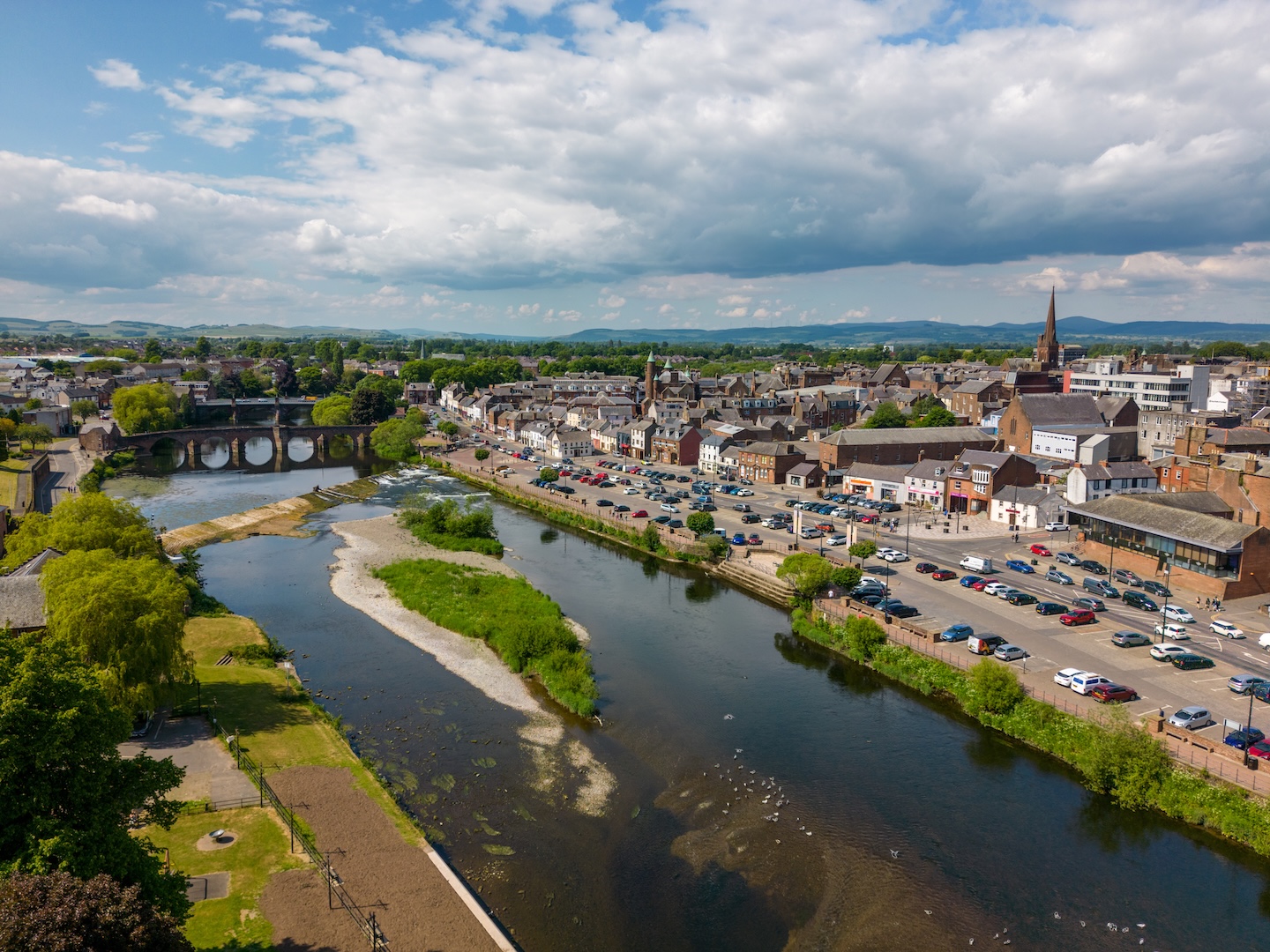When you're scaling a tech company at breakneck speed, you don’t necessarily need another well-meaning mentor offering generic advice or asking you to fit into their schedule. You need someone who gets it - someone who's been in the trenches, made the mistakes, and can move at founder speed when you need them most.
That's exactly why CodeBase introduced Entrepreneurs in Residence (EIRs) as part of our Techscaler programme. It's not just another support initiative; it's a fundamental reimagining of how we show up for Scotland's most ambitious tech founders.
The Problem with Traditional Support
The reality is harsh but true: traditional accelerator support often falls short when it comes to high-growth companies. As Matt Farrugia, one of our EIRs, puts it perfectly: "The most constrained resource you have in a startup is the energy of a founder." Yet too often, support systems drain that energy rather than amplify it.
Fast-scaling founders face a unique set of challenges. They're beyond the "I need help with my business plan" stage but aren't yet at the point where they have a full advisory board. They need someone who can be, as Andrew McGinley describes it, "that friendly co-founder" - someone who understands the isolation of the founder journey and can provide strategic guidance without creating dependency.
Meet the EIRs: Battle-Tested Founders Giving Back
Our three EIRs bring distinctly different expertise to the table, creating a comprehensive support ecosystem:
Andrew McGinley brings deep health tech experience and has navigated the full journey from pre-seed to Series A. His focus is on helping founders validate through sales, not just talking to customers, but actually getting them to pay. "The most critical part is selling to customers and actually have that validation that people are willing to buy and pay for that," he emphasises.
Hannah Mercer combines technical expertise in image recognition with a mathematician's approach to problem-solving. Having built and exited her own company focused on child safety technology, she specialises in helping founders navigate the early-stage to growth transition. Her pragmatic approach to MVP development challenges the assumption that you need to build everything from scratch: "There are so many products now that you can smash together an MVP without too much thought."
Matt Farrugia is the commercial technologist - a rare breed who combines deep software engineering expertise with years of running P&Ls and engaging with VCs. He's particularly skilled at helping technical founders develop their commercial instincts and frame their ambitions in ways that excite investors.
Solving Real Problems, Not Hypothetical Ones
The problems our EIRs tackle aren't theoretical, they're the daily challenges that keep founders awake at night:
The Validation Trap: Many founders get stuck in endless customer research without ever asking for money. Andrew's approach is direct: "Speak to your customers as much as possible and validate that by also selling to your customers."
Investment Strategy Confusion: Hannah regularly fields questions about raising investment, but her advice might surprise you: "Stop and take a think of what you actually want to do. Investment is a full-time job." She points to companies like Simple Online Healthcare, which reached £60 million in revenue entirely bootstrapped, as proof that investment isn't always the answer.
The Loneliness of Leadership: Perhaps the most underestimated challenge is the isolation founders feel. Matt describes his role partly as "rubber duck debugging" for founders - providing a safe space to think through problems out loud with someone who truly understands the context.
Moving at Founder Speed
What sets our EIRs apart isn't just their expertise, it's how they deliver it. They operate on four key principles:
Be Radically Relevant: Every interaction, introduction, or piece of advice is tailored to where the founder is right now, not where they might be in six months.
Move at Founder Speed: When a scaling founder needs help, they need it immediately. Our EIRs prioritise responsiveness over process.
Founder-Led, Not Founder-Dependent: The goal is to accelerate progress, not create another dependency. As Hannah demonstrated at a recent AccelerateHer hackathon, where her team built a functioning MVP in an afternoon, sometimes the best support is showing founders what's possible.
Earn Trust Through Consistency: Unlike traditional mentoring relationships that might involve monthly check-ins, our EIRs stay connected consistently, available when founders need them most.
Impact Beyond Individual Companies
The real power of the EIR model extends far beyond individual founder support. Each successful company creates a ripple effect throughout the Scottish tech ecosystem:
Network Effects: Andrew emphasises the importance of "making connections within the ecosystem," whether to other founders, investors, or potential customers. These connections become the connective tissue that strengthens the entire community.
Proof Points for Investors: When Scottish companies scale successfully, it changes how investors view the entire ecosystem. Matt particularly focuses on helping founders "frame the maximally ambitious version of their idea" because "in Scotland, we can be a little bit good at moderating our own enthusiasm in front of investors."
Knowledge Transfer: Each interaction creates learning that benefits the broader community. Hannah's hands-on approach at hackathons and events doesn't just help individual founders, it demonstrates new possibilities to everyone in the room.
The Scottish Advantage
What's emerging is uniquely Scottish: a support model that combines the ambition of Silicon Valley with the collaborative spirit that defines our tech community. Our EIRs aren't just advisors; they're active participants in building something bigger than any individual company.
As Andrew reflects on his own journey:
"The team at CodeBase were vital for me and had a huge impact on introductions to investors, informing me what pitch decks looked like... By being involved with CodeBase, that was vital to our early success and traction and something that I wanted to get involved in and give back once we got to the stage where I exited the business."
This is the flywheel effect in action: successful founders giving back to create the conditions for the next generation of Scottish tech success stories.
Beyond Support - Building the Future
The EIR programme represents something more ambitious than traditional founder support. It's about creating an ecosystem where Scotland's most promising tech companies have everything they need to compete globally, without having to leave home to find it.
In Matt's words, the goal is simple:
"I want to be cheerleading for the energy of the founder so that they come out of a meeting after me thinking they can take on the world."
When founders feel supported, energised, and connected - that's when Scotland's tech ecosystem doesn't just compete globally, it leads globally.
To learn more about how our EIRs might support your company's growth, get in touch with our team.













.jpg)




